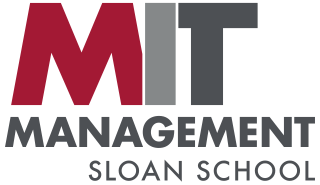
The MIT Sloan School of Management is the business school of the Massachusetts Institute of Technology, a private university in Cambridge, Massachusetts. MIT Sloan offers bachelor's, master's, and doctoral degree programs, as well as executive education. Its degree programs are among the most selective in the world. MIT Sloan emphasizes innovation in practice and research. Many influential ideas in management and finance originated at the school, including the Black–Scholes model, the Solow–Swan model, the random walk hypothesis, the binomial options pricing model, and the field of system dynamics. The faculty has included numerous Nobel laureates in economics and John Bates Clark Medal winners.

Wheaton College is a private liberal arts college in Norton, Massachusetts. Wheaton was founded in 1834 as a female seminary. The trustees officially changed the name of the Wheaton Female Seminary to Wheaton College in 1912 after receiving a college charter from the Commonwealth of Massachusetts. It remained one of the oldest institutions of higher education for women in the United States until men began to be admitted in 1988. It enrolls 1,669 undergraduate students with no graduate students.
The Norbert O. Schedler Honors College is an interdisciplinary program at the University of Central Arkansas. One of the first Honors Colleges in the country, the Schedler Honors College leads to the receipt of a minor in Interdisciplinary Studies. Successful completion of the minor requires a senior thesis or a supplemental senior project such as a performance, exhibit, or other creative work.
The Weatherhead School of Management is a private business school of Case Western Reserve University located in Cleveland, Ohio. Weatherhead offers programs concentrated in sustainability, design innovation, healthcare, organizational behavior, global entrepreneurship, and executive education. The school is named for benefactor and Weatherchem owner Albert J. Weatherhead III, and its principal facility is the Peter B. Lewis Building.

The Louisiana Scholars' College at Northwestern State University, or "Scholars' College" as it is known by its students and faculty, is Louisiana's only designated four-year, selective-admissions honors college in the liberal arts and sciences.
The MIT Entrepreneurship Center is one of the largest research and teaching centers at the MIT Sloan School of Management, the business and management school at the Massachusetts Institute of Technology. It was founded in the early 1990s and charged with the mission to develop MIT's entrepreneurial activities and interests in education and research, alliances, and the community.
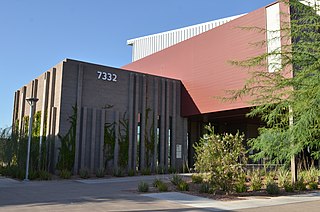
Arizona State University Polytechnic campus is a public university in Mesa, Arizona. It is one of five campuses of Arizona State University. Founded as ASU East, the campus opened in fall 1996 on the former Williams Air Force Base in southeast Mesa.
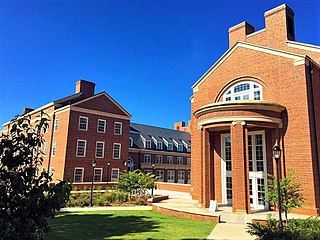
The C. Herman and Mary Virginia Terry College of Business is a constituent college of the University of Georgia in Athens, Georgia, United States. The business college offers undergraduate programs, MBA programs, specialized master's programs and doctoral programs. It was founded as the first business school in the American South in 1912. The Terry College MBA Program is often recognized as a top 40 graduate business program and has a selectivity rate of approximately 35%.
McPherson College is a private college associated with the Church of the Brethren and located in McPherson, Kansas. It was chartered in 1887 and is accredited by the Higher Learning Commission.

The Olin Business School is one of seven academic schools at Washington University in St. Louis. Founded in 1917, the business school was renamed for entrepreneur John M. Olin in 1988. The school offers BSBA, Master of Business Administration (MBA), MS in Supply Chain Management, MS in Finance, Masters in Accounting, MS in Business Analytics, MS in Leadership, Executive MBA, Doctor of Business in Finance (DBA) and PhD degrees. In 2002, an Executive MBA program was established in Shanghai, in cooperation with Fudan University and in 2017, along with IIT-Bombay started an EMBA program in India.
The First-Year Experience (FYE) is a program at many American colleges and universities designed to help students prepare for the transition from high school to college. FYE programs often foster the participation of students in co-curricular events such as common reads, concerts, art exhibits, and guest lectures.

The University of Liechtenstein is a public university located in the Principality of Liechtenstein. It focuses on two fields of study – architecture and business economics. The University of Liechtenstein is located in Vaduz, the capital of the principality. The students and faculty come from 40 countries, and the university has partnerships with 80 other institutions.
Barrett, The Honors College at Arizona State University is a university honors program that provides nearly 7,000 students with a residential experience that is similar to that which one might find at a smaller college or university, while still giving access to the resources of a major research institution. The administration offices for Barrett are located at Sage North Hall in the Barrett Honors Complex, on ASU's Tempe campus, however, the program maintains a presence at all of ASU's Arizona campuses.
Muhammadiyah University of Makassar, also known as Unismuh Makassar, is a private university located in the city of Makassar, Indonesia. As a private university, Unismuh Makassar is coordinated under Kopertis Wilayah IX, which is a government-funded institution that coordinates private higher education in Indonesia. Unismuh is accredited 'B' based on the National Accreditation Body (BAN-PT).
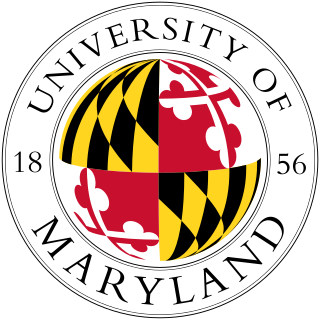
The University of Maryland, College Park is a public land-grant research university in College Park, Maryland. Founded in 1856, UMD is the flagship institution of the University System of Maryland. It is also the largest university in both the state and the Washington metropolitan area, with more than 41,000 students representing all fifty states and 123 countries, and a global alumni network of over 388,000. Together, its 12 schools and colleges offer over 200 degree-granting programs, including 92 undergraduate majors, 107 master's programs, and 83 doctoral programs. UMD is a member of the Association of American Universities and competes in intercollegiate athletics as a member of the Big Ten Conference.

Maastricht Science Programme is an English language, internationally oriented, Liberal Arts & Sciences programme. Founded in 2010, it welcomed its first students in September 2011. The Maastricht Science Programme is unique in its kind. Students are free to design the programme of their choice by choosing courses from an extensive offer of natural science courses, combined with interdisciplinary courses. The Programme is part of Maastricht University and offers an honours programme with a high workload for motivated students. Admission is twice a year, with the Introduction courses also running biannually.
The Tepper School of Business is the business school of Carnegie Mellon University. It is located in the university's 140-acre (0.57 km2) campus in Pittsburgh, Pennsylvania, US.
The Karachi School of Business and Leadership (KSBL) is a premier and HEC recognized independent degree awarding business school located in the heart of Karachi, Pakistan, established in 2009, under the charter of Sindh Government of Pakistan, 2012. KSBL is located on Stadium Road. The campus facilitates its students through modern teaching methodologies and latest technologies.
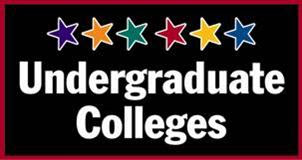
Stony Brook University has an undergraduate population of around 15,000 students. In order to create a sense of community among the students in this relatively large campus, the Undergraduate Colleges of Stony Brook University was developed. These Undergraduate Colleges, or UGCs, function as smaller communities in the larger university and are themed so as to provide an academic aspect to students individual interests. They particularly invested in creating an enjoyable first-year student experience for students, but they do offer services to sophomores and upperclassmen. Notable programs offered are first-year advising, UGC themed events, and small seminar courses.
Patrick G. Maggitti is the first provost of Villanova University. As Provost, Maggitti is the chief academic officer and oversees Villanova’s academic enterprise: six colleges and academic areas, including Graduate and Undergraduate Research, Falvey Memorial Library, the Honors Program, Enrollment Management, Decision Support and Data Integrity, and Strategic Planning and Institutional Effectiveness.










